Related Research Articles

The Cave of the Patriarchs or Tomb of the Patriarchs, known to Jews by its Biblical name Cave of Machpelah and to Muslims as the Sanctuary of Abraham, is a series of caves situated 30 kilometres (19 mi) south of Jerusalem in the heart of the Old City of Hebron in the West Bank. According to the Abrahamic religions, the cave and adjoining field were purchased by Abraham as a burial plot, although most historians believe the Abraham-Isaac-Jacob narrative to be primarily mythological. The site is considered a holy place in Judaism and Islam.

Sarah is a biblical matriarch, prophetess and major figure in Abrahamic religions. While different Abrahamic faiths portray her differently, Judaism, Christianity, and Islam all depict her character similarly, as that of a pious woman, renowned for her hospitality and beauty, the wife and half-sister of Abraham, and the mother of Isaac. Sarah has her feast day on 1 September in the Catholic Church, 19 August in the Coptic Orthodox Church, 20 January in the LCMS, and 12 and 20 December in the Eastern Orthodox Church.

Ishmael was the first son of Abraham, the common patriarch of the Abrahamic religions, through his wife Sara's handmaiden Hagar. According to the Genesis account, he died at the age of 137.

Grace Aguilar was an English novelist, poet and writer on Jewish history and religion. Although she had been writing since childhood, much of her work was published posthumously. Among those are her best known works, the novels Home Influence and A Mother's Recompense.
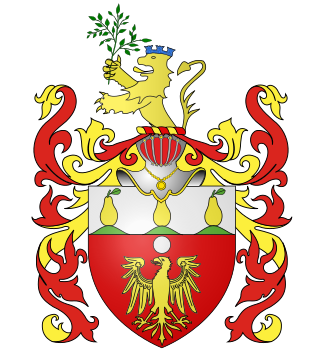
Baron Diego Lopes Pereira d'Aguilar was a Portuguese-born London-based Jewish businessman, community leader and philanthropist, originally a Portuguese converso, who lived in the 18th century. He was created a baron of the Holy Roman Empire by Empress Maria Theresa of Austria.

Isaac Aboab da Fonseca was a rabbi, scholar, kabbalist and writer. In 1656, he was one of several elders within the Portuguese-Israelite community in the Netherlands who excommunicated Baruch Spinoza.

Joanna Vassa was the only surviving child of the former slave and anti-slavery campaigner Olaudah Equiano. Her grave in Abney Park Cemetery, London, was given listed status in 2008 but little is known of her life.
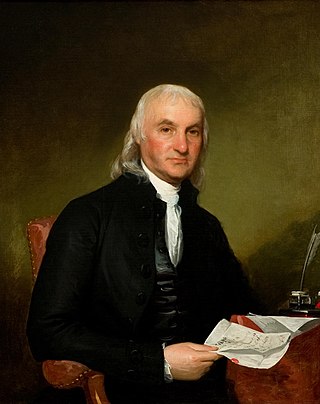
Isaac Roosevelt was an American merchant and Federalist politician. He served in the New York State Assembly and the state Constitutional Convention and achieved the most political success of any Roosevelt before Theodore Roosevelt. Isaac was the patrilineal great-great-grandfather of President Franklin Delano Roosevelt. He was the second generation of what would later come to be known as the Hyde Park, New York branch of the extended Roosevelt family. Isaac's fortune from the refining of sugar, and his political accomplishments, became an essential root of the substantial wealth, prominence and influence that the Hyde Park Roosevelts came to amass.

Sir Moses Haim Montefiore, 1st Baronet, was a British financier and banker, activist, philanthropist and Sheriff of London. Born to an Italian Sephardic Jewish family based in London, after he achieved success, he donated large sums of money to promote industry, business, economic development, education and health among the Jewish community in the Levant. He founded Mishkenot Sha'ananim in 1860, the first Jewish settlement outside the Old City of Jerusalem.
Jacob Levi Montefiore was a British businessman and financier known for his activities in the Australian colony of New South Wales.
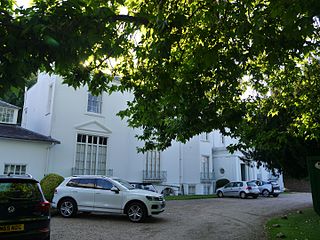
Richardson Evans was a British civil servant, journalist and author.
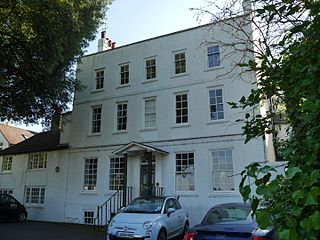
Stamford House is a Grade II listed house on the west side of Wimbledon Common, Wimbledon, London, built in about 1720.
Joseph Barrow Montefiore, merchant and financier, was the youngest son of Eliezer Montefiore, merchant, of Barbados and London, and his wife, Judith.
Marianne Thornton was an English human rights activist, who campaigned for the abolition of slavery.
Jacob Barrow Montefiore (1801–1895) was a member of the South Australian Colonization Commission in London from 1835 to 1839, a body appointed by the British Government under King William IV to oversee implementation of the South Australia Act 1834, which established the Colony of South Australia.
Manuel Rodrigues de Lamego was a Portuguese-born merchant and slave trader active in Europe, Africa, Asia and the Americas. Rodrigues de Lamego was a Marrano. He was contracted by the Spanish Empire with an official asiento to provide their colonies in the Spanish Americas with African slaves from 1 April 1623 to 25 September 1631. During this time, he was the Contratodore for the Atlantic slave trade in Angola's Portuguese West African territory. Contrary to his predecessor as asiento holder, António Fernandes de Elvas, he was not the Contratodore for Cape Verde and Guinea. After his tenure, he was succeeded as asiento holder by Melchor Gómez Angel and Cristóvão Mendes de Sousa, while he was succeeded as Contratodore for Angola by Henrique Gomes da Costa.
Emanuel Lousada was a London-born Jewish merchant, slave plantation owner and public office holder with interests in Jamaica and Barbados. He was the High Sheriff of Devon from 1842 until 1843, making him the first Jew to hold the title in a county outside of the Sheriff of London, which had been held first by David Salomons in 1835. Lousada was associated with Peak House, Sidmouth. Lousada owned more than 400 African slaves on his sugarcane plantations in the British West Indies at the time of the Slavery Abolition Act 1833. He died a wealthy man, leaving £100,000 in his will.
The Monsanto family is a historical Sephardic Jewish merchant and banking business who played a significant role in founding the Jewish community in Colonial Louisiana in the 18th century. They had originated in the Iberian Peninsula but moved to Amsterdam and spread out through the Dutch Empire and to the Americas at Curaçao. The family arrived in Louisiana in the 1760s, and one of their members, Isaac Monsanto, was one of the wealthiest merchants in New Orleans. The family engaged in the Atlantic slave trade and owned African slaves at their plantations at Natchez, Mississippi and Trianon, New Orleans. Not including their former estate in New Orleans, by the 1780s, the Monsantos kept 51 slaves for their personal use and sold other enslaved African people to Louisiana plantations.
Don Jahacob Hisquiau Curiel was a Dutch merchant, who spent part of his life on the Dutch Caribbean island of Curaçao. He was born into a Sephardic Jewish family in Amsterdam.
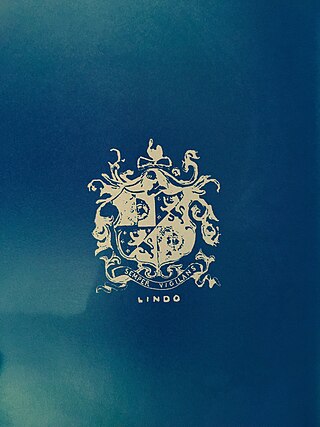
The Lindo family was a Sephardic Jewish merchant and banking family, which rose to prominence in medieval Spain.
References
- ↑ Eli Faber (1 July 2000). Jews, Slaves, and the Slave Trade: Setting the Record Straight. NYU Press. pp. 79–. ISBN 978-0-8147-2879-6 . Retrieved 24 July 2016.
- ↑ "Microsoft Word - Part 2C, West Side Common.doc" (PDF). Merton.gov.uk. Archived from the original (PDF) on 23 December 2014. Retrieved 17 August 2016.
- ↑ "Wimbledon and the Slave Trade". Wimbledonmuseum.org.uk. Retrieved 17 August 2016.
- ↑ "Papers". Wimbledonmuseum.org.uk. Retrieved 17 August 2016.
- ↑ "Centre for the Study of the Legacies of British Slavery".